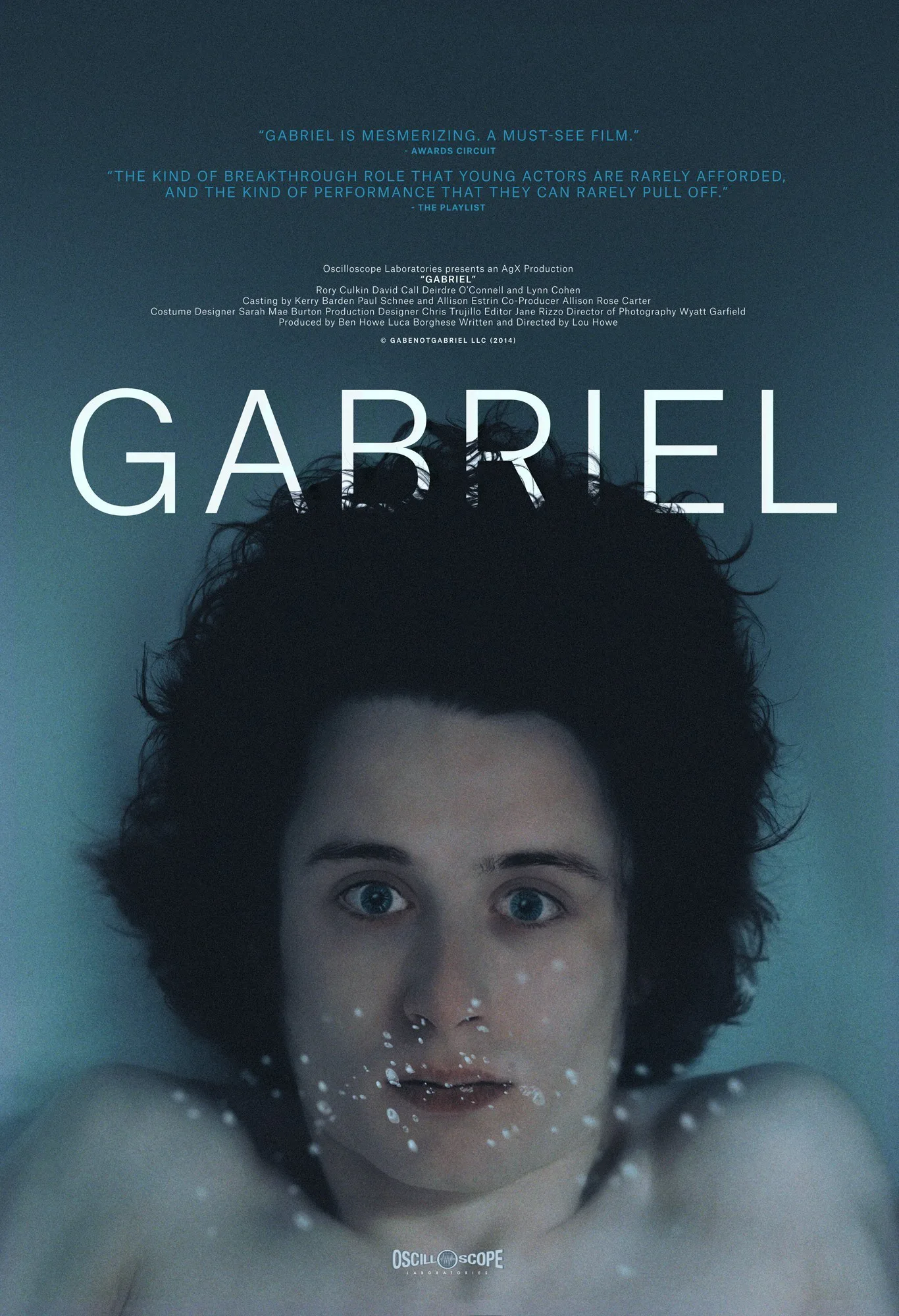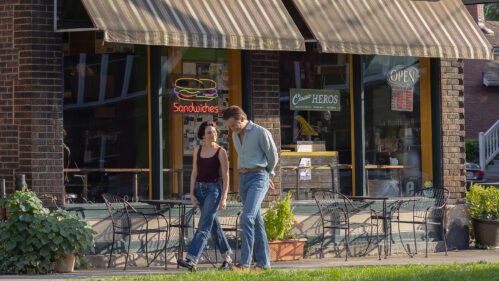“Gabriel” isn’t a perfect movie, but it’s a great reminder of what movies can do, and used to do often, until American movies decided to concentrate mainly on spectacle and franchise building and leave characterization to TV.
Rory Culkin (“You Can Count on Me“) plays the title character, a teenaged boy who’s first seen sitting on a bus, talking to a toddler through the crack of the seats in front of him. He eventually invites the toddler to sit next to him and teaches him how to pretend to smoke a cigarette using torn-up pieces of Twizzler candy. In due course, the toddler’s mother arrives and takes her son away. We can understand why. Gabriel is a smart, eloquent, alert kid, but there’s something off about him. He has no sense of boundaries or propriety, and he doesn’t think before he speaks or acts. He’s sensitive and wounded and often insufferably hypersensitive. He can be arrogant and hostile. At dinner with his mother (Deirdre O’Connell) and older brother (David Call), he waves a small knife “menacingly,” as if to make light of the ridiculousness of the idea that he could menace anyone, but it is quite menacing.
Gabriel was recently released from a mental hospital. He’s been prescribed medication but resists taking it, even when his mother practically begs him to. Is he violent? He’s definitely erratic in his behavior, and unrealistic about his prospects, especially where a college student named Alice (Emily Meade) is concerned. She was affectionate with him once, and now he wants to marry her. This seems like one of those missions that can’t end well.
Although “Gabriel” has no first-person narration, just scene after scene of observed behavior, watching it reminded me of reading “The Catcher in the Rye” for the first time. Gabriel comes from an upper-middle class, possibly wealthy home. His family and friends move in the sorts of circles where people are assumed to attend private school, and have second homes, and generally try to keep things like mental illness under wraps. Holden Caulfield didn’t have exactly the same issues as Gabriel, but Gabriel has quite a few Holden-esque qualities, including a fascination with children and innocence, a tendency to run away (or run off) rather than deal with problems, and a propensity for depressive introversion and extreme mood swings. (He’s the sort of kid who can heap abuse on himself, then hopefully announce “I deserve love” moments later.) Gabriel also displays a particular kind of adolescent self-consciousness that leads him to micro-analyze the language and behavior of others as well as himself, but without the analysis really leading anywhere. The film has a gently paralyzed quality. Everyone’s so sensitive, and so trapped.
Is “Gabriel” trying to say anything about mental illness, or society’s attitude toward it? I don’t think so, and that’s probably for the best, because it’s a big part of what makes the movie so refreshing. “Gabriel” doesn’t feel like a “statement” sort of film. It’s feels more like an observational drama, along the lines of “The Last Detail” or “Harry and Tonto.” The nearly exclusive focus on Gabriel makes us think about the responsibility of families and communities toward people who’ve been designated as dangers to themselves or others; but that’s just a sidelight. The movie is mainly about Gabriel, and the people who are scared of him even though they care deeply about what happens to him.
“Gabriel” is the writing and directing debut of Lou Howe. It’s spare, intelligent, and almost eerily quiet at times; there’s not much music, and Howe likes to keep the camera on his actors for as long as he can, a rare quality in an era when a lot of filmmakers are so terrified of boring viewers that they can’t let a character finish a sentence without cutting to a reaction shot of someone listening. The entire cast is extraordinary. Culkin is a revelation, making us respect Gabriel’s sense of humor and observational power and root for the boy to find peace without blunting the character’s petulant, volatile edge. Deirdre O’Connell is equally strong as Gabriel’s mother Meredith, who realized long ago that she wasn’t up to the task of raising her son, and often seems as though she feels guilty for not feeling guiltier about this. She and Culkin have a scene together about three-quarters of the way through, focused on the fate of Gabriel’s father, that’s all the more powerful for being played with restraint.
The movie feels a bit long and shaggy, even at 90-plus minutes. It lays all its dramatic cards on the table pretty early and doesn’t really have any more to play after that, and there’s a confrontation near the end that feels like it comes more from a need to jolt the film out of its torpor than dramatic cause-and-effect. But this is still, for the most part, an extraordinarily assured first film, of a type that we rarely see made anymore.




















